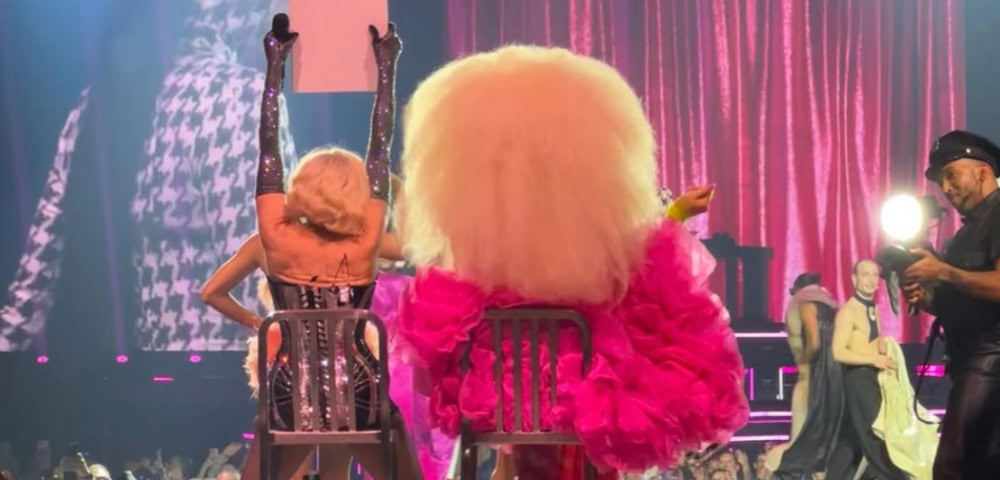
Aussie Grindr users targeted in mass scam campaign

Australian Grindr users have been subjected to an organised campaign by internet scammers trying to get them to sign up to a fake dating website which then charges their credit cards without their permission, the Star Observer can reveal.
Grindr users have been bombarded by scammer profiles in recent months, with several users contacting this publication to make their concerns known.
“It’s bad enough that you have to get the paid version of the app to even know if your messages have been delivered, but I am interacting with pretty obvious scammer profiles multiple times every single week,” one Grindr user told us.
“I had been reporting these profiles to Grindr through the app but then I noticed that nothing was being done about it, so I just gave up.”
The user showed the Star Observer one such scammer profile that he reported to Grindr that was still on the app over a month later.
Another user was astounded that Grindr would let a third party target its members in this way.
“Surely it should be an automatic red flag in their system if people are putting website addresses in their profile information or are messaging website addresses to people,” he said.
“It’s just unprofessional for a dating app to allow another party to go after its members like this. I have four dating apps on my phone and Grindr is the only one where internet scammers are constantly spamming me with taps and messages.”
Scammers on Grindr typically tap people’s profiles to get them to read web addresses in their profile information, or message users web addresses or images that contain web addresses.
Sometimes they will swap a few messages with users before directing them to connect with them on another website.
These web addresses are often spaced out, or have some letters replaced with symbols or use unusual alphabets to try to avoid detection by Grindr.
In another version of the scam, scammers pretend to be sex workers and message users to direct them to web addresses where they say they have an escort profile.
Scammers are able to make it seem that they live in the same city or area as Grindr users by falsifying their distance information, and often appear to be only a couple of kilometres away from their intended victims.
All of the different web addresses given out by scammers on Grindr that the Star Observer has seen redirect to the same website, GaysTryst, a fake dating website that has hidden its ownership details online, and lists its place of business as “Office 1, 1 General street, General city, 1111, General country.”
According to reports about GaysTryst on consumer complaints websites, people who sign up for free trial memberships with the website will have their credit cards billed regardless.
If people contact GaysTryst to try to get the charges reversed, its operators will stall for time and continue to bill them for small amounts of money and sign them up for other services that they haven’t requested until they change their credit card details.
You should immediately change your credit card details if you fall for the scam.
The Star Observer directed questions to Grindr about whether it is aware that its customers are being targeted in this way and what Grindr intends to do about it but we received no response before going to print.
Grindr would not confirm whether it has any human oversight of its moderation of new profiles or whether it employs humans to moderate profiles that are reported by users.
NSW Police Financial Crimes Squad commander, Detective Acting Superintendent Richard Puffett told the Star Observer that any Australian victims of the scam should contact the police in their state or territory regardless of whether they thought the scammers are located in Australia or another country.
“Scammers prey on people through online dating sites, social media, or through emails. These dating scams often involve fake profiles or accounts, with the scammer posing as a romantic prospect,” Acting Superintendent Puffett said.
“Romance and dating scams can be especially devastating for people as they’ve not only been duped financially but also emotionally. The NSW Police Force acknowledges that many victims of romance scams are reluctant to come forward because they feel embarrassed and are disinclined to want to publicise their involvement.”
“Our investigators are keen to speak to all victims of fraud, no matter how trivial. Any victim to these scams is encouraged to report it to police. Our investigators don’t judge – all they want is to help bring scammers to justice.”
Puffett said people should consider the possibility that a person could be a scammer when approached online and advised people to do a Google image search of their profile photos to see whether they have been copied from the internet.
People should be very suspicious of anyone who tries to get them to switch to another means of communication in order to continue to interact with them.
People can also report online scams to the ACCC’s Scamwatch website.
In unrelated news, the US Government has ordered that Grindr’s mainland Chinese owner Beijing Kunlun Tech Co sell the company by 2020 over concerns that users’ data could be used by the Chinese Government for espionage purposes.
It’s 2016 majority shareholding and 2018 full acquisition of Grindr were not cleared by the Committee on Foreign Investment in the United States.










I think Grindr has bots as supports, it says Alex@Grindr – that’s it. No photo or full name. They will ban you for no reason, they don’t send any proof or check the chat history.
I don’t think Grindr has any real support, people – they accuse innocent people of stuff but won’t show the proof. They will say you abused this guy but won’t show the abuse. Then they use their rules. I think it’s fake bots’ support.